20+ SAMPLE Consulting Contracts
-
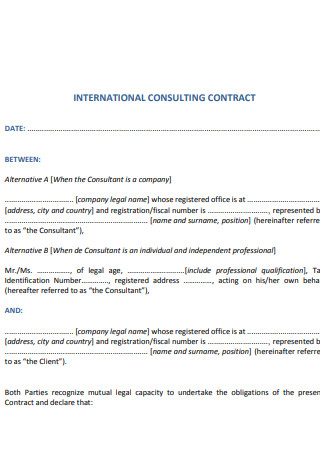
International Consulting Contract
download now -
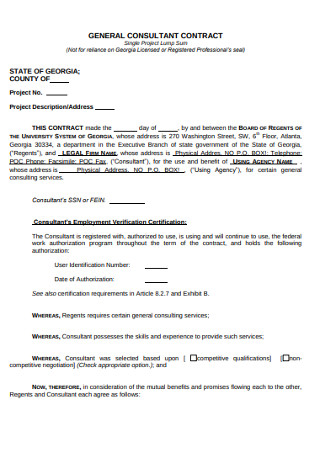
General Consultant Contract
download now -
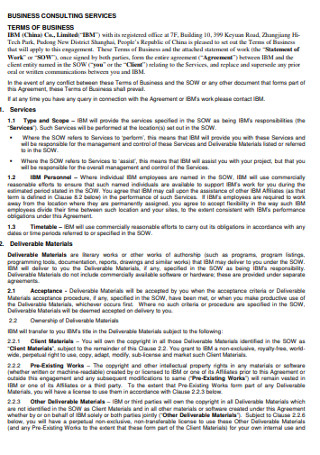
Services Consulting Contract
download now -
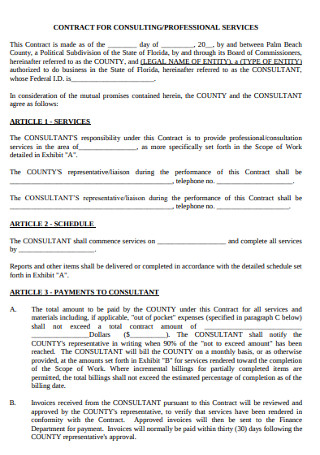
Contract for Consulting
download now -
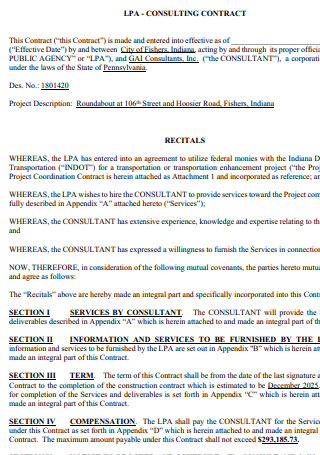
LPA Consultant Contract
download now -
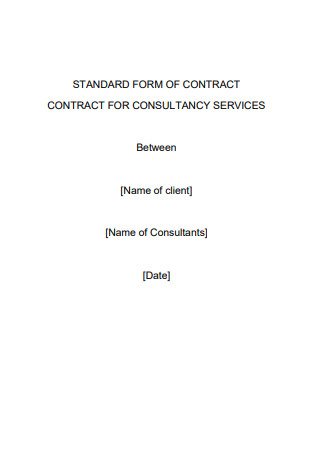
Standard Form of Contract
download now -
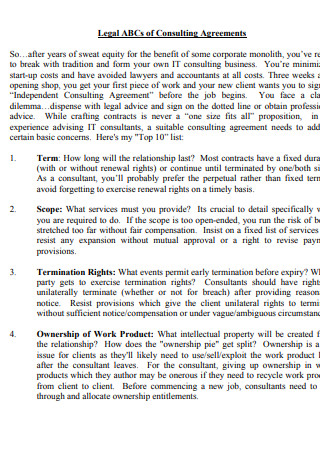
Consultant Contracts
download now -
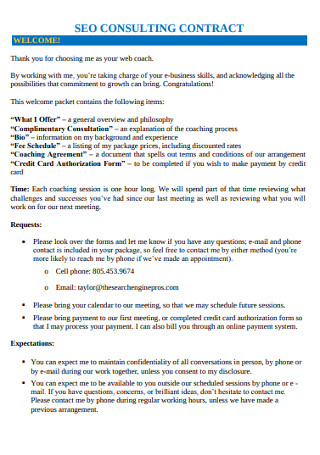
SEO Consulting Contract
download now -
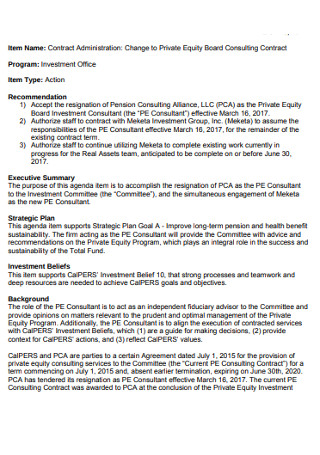
Consulting Administration Contract
download now -
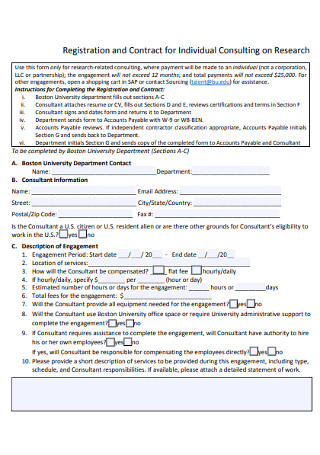
Individual Consulting Research Contract
download now -
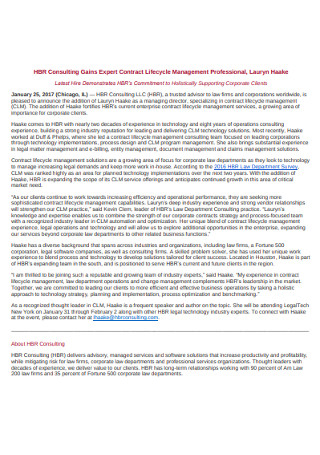
Consulting Management Contract
download now -
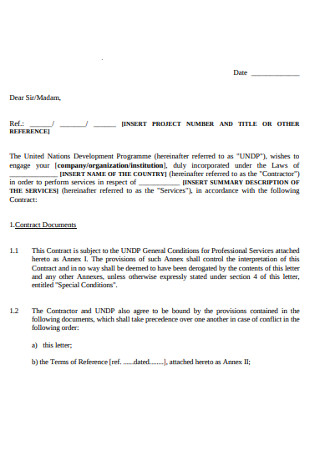
Company Consulting Contract
download now -
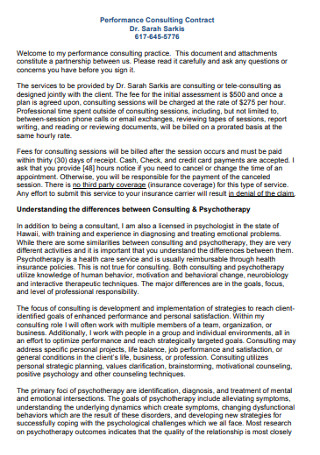
Performance Consulting Contract
download now -
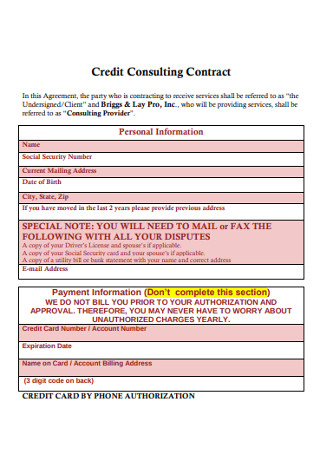
Credit Consulting Contract
download now -
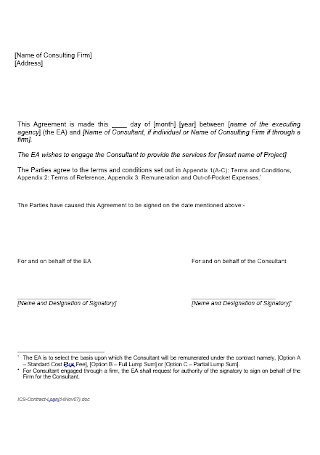
Consulting Service Contract Template
download now -
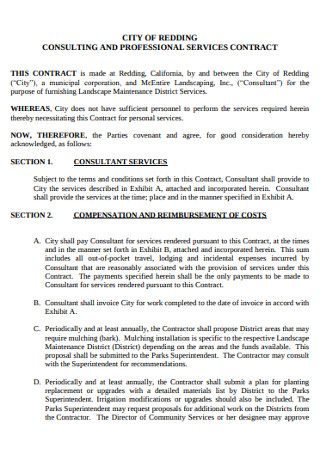
Consulting and Professional Services Contract
download now -
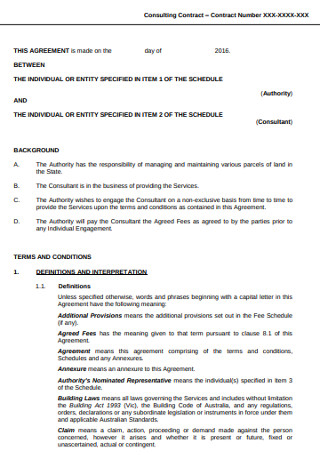
Sample Consulting Contract
download now -
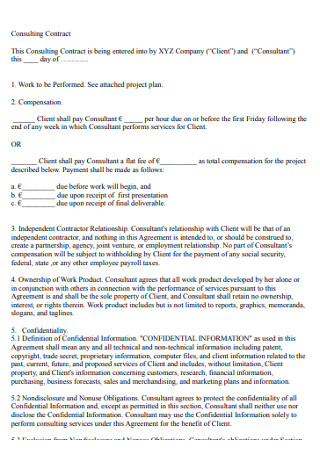
Professional Consulting Contract
download now -
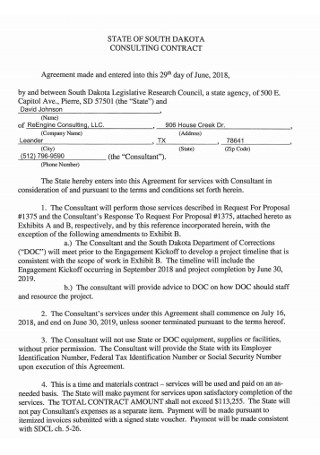
Simple Consulting Contract
download now
FREE Consulting Contract s to Download
20+ SAMPLE Consulting Contracts
What Is a Consulting Contract?
Key Elements Included in a Consulting Contract
Step by Step Process in Creating a Consulting Contract
Why Is a Consulting Contract Important?
FAQs
What Is the Difference between a Consultant and a Contractor?
What is a Retainer Agreement?
What Is a Consulting Contract?
First, what is a consultant? A consultant is a person that has extensive knowledge about a certain field. They provide professional advice on different subject matters. A consulting contract is a kind of contract agreement that is known in many names. It can also be referred to as a consulting service contract or agreement. In some cases it is also called freelance contract agreement and independent contractor agreement. This is a legally binding contract between a client and the person providing the service or otherwise called as the consultant.
Key Elements Included in a Consulting Contract
Step by Step Process in Creating a Consulting Contract
Step 1: Select a Template
The first thing to do in creating a detailed and effective consulting contract is to select a format. You can make use of the available templates given above.
Step 2: Identify the Basic Pieces of Information
The next step would be to identify and fill out the top part of the document. This is usually the name of the company or the consultant. Along with their name is the contact information as well as their address. Also, include the name, contact information and the address of the client.
Step 3: Identify the Different Work Statement
Next thing to do is to dive deeper and identify the scope of work or the services that will be provided. This will require a discussion between the client and the consultant. In this step also it is important to identify what the deliverables are. Identify what the expected tangible outcomes are. Clients may require a monthly progress report or summary of the work that the consultant has conducted. It is important to clearly state and identify the services that are included as well the services that are not included. Identify also the timeframe of the project. When are the deadlines? State the different key activities as well as the date they will be performed. Lastly, have an estimate of the finish project or the end date of the consultation service.
Step 4: Identify the Compensation
Next is to assign a value or identify the cost for each of the services that are included in the agreement. Identify also the due date for the payment and the different method of payment.
Step 5: Identify the Supporting Clauses
The supporting clauses would be the confidentiality clause, the non competition clause and the non solicitation clause. This will protect both the client and the consultant from any problems and make the whole duration of the agreement run smooth.
Step 6: Identify the Termination Clause
With clarity, discuss the termination of the contract clause and the repercussions of the cancellation. Both the client and the consultant should have knowledge and understanding about this.
Step 7: Consult a Lawyer
This is a formal and sensitive document. It is important to consult a lawyer for advice and evaluation. This will make sure that the different provisions and terms stated in the contract is in compliance with the law of the state. This will lead to a better understanding and safe process of the consultation. This will also help in order to avoid legal issues and problems.
Step 8: Finalize and Sign
Knowing that this is a legal and sensitive document, make sure to review the contract and check for errors. It is important that both parties fully read and understand every detail stated in the contract agreement. After understanding the document, the client and the consultant must affix their signature along with the date to formalize the agreement.
It is important to note that if there are any disputes or changes, the contract should be a point of reference and it must be updated in order to comply with the law or that changes that happened. It is important that a consulting contract is open for discussion and renegotiation. Also, keep in mind that both parties must have a copy of the contract.
Why Is a Consulting Contract Important?
It is necessary to have this as a requirement to make the consulting service formal and legal. However, there are many different benefits of having a consulting contract.
It Protects both the Client and the Consultant
Having this kind of document will protect both parties from doing any excess activities or payments that are not particularly involved in the agreement. This will protect the client from overspending and make sure that the provided tasks agreed upon are all performed. On the other hand, this will also protect the consultant from performing tasks that are not supposed to be done. This will also make sure that both parties are not violating any legal or state law. This will make sure that both activities and payments are all in compliance with the law of their respective state or government.
It Establishes a Relationship
This will clearly define the relationship of the business. A consulting contract must clearly state that a consultant is neither an employee nor a partner of the client.
It Protects the Intellectual Property
This contract will clearly state the ownership of the pieces of information and the different methods that will bring about the success of the project. This will make sure that the sensitive and private data or information will not fall in the wrong hands. Intellectual property will also include different research. This is to identify who will have the right to those properties. Just like in an information security policy, it is a must that all the data are not seen and accessed by non authorized personnel.
It Helps in the Success of the Project
The contract will clearly state and evaluate the different key activities. This document may be a means of reference to use in order to check the progress of the project. This may as well check the timeframe of the different critical activities.
FAQs
What Is the Difference between a Consultant and a Contractor?
The similarities of a consultant and a contractor is that they both help their clients achieve success and maximum efficiency in doing so. A common job description for both the terms is that they do a thorough evaluation of the client or the project of the client. However, they still have their differences. The main difference is that after a contractor has done the evaluation he or she immediately goes to work to perform the different tasks. On the other hand, a consultant is someone who will focus on giving expert advice. But, the one doing the work is still the client or the employees of the client.
What is a Retainer Agreement?
A retainer is a down payment that is given to the consultant. This will make them feel secured. This will also help in making sure that the client is capable of availing the service and in need of professional or expert advice. This will lead to the consultant investing their time and doing an extensive research on the scope of the project. This will ensure that the performance of the consultant will be his or her utmost best.
A consulting contract is a formal document that will tackle all the scope of work that is to be provided by the consultant to the client. This will also help in making sure that both parties have built a strong relationship. This document will also fully discuss and explain sensitive subject matters. This will help in ensuring that both parties are able to comply with the rules and regulation of their local government. Make use of the templates that are available above in order to have a credible and strong consulting contract.
